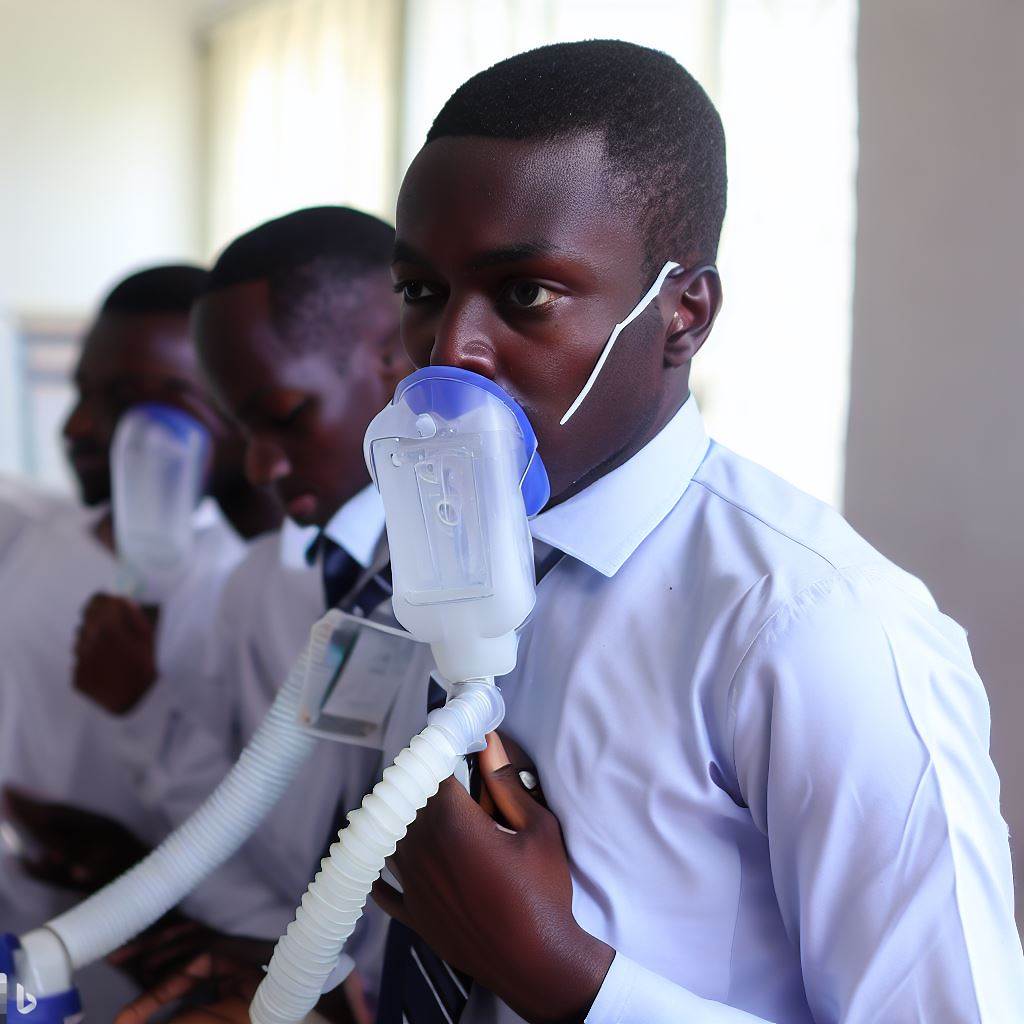Introduction
Definition of Speech-Language Pathology
Speech-Language Pathology Advancements is a field that focuses on the assessment, diagnosis, and treatment of communication disorders.
Importance of advancements in the field
Advancements in Speech-Language Pathology are crucial in improving the quality of life for individuals with communication difficulties.
Overview of the Nigerian speech-language pathology scene
In Nigeria, Speech-Language Pathology is an emerging field with limited resources and awareness, but with immense potential for growth and impact.
Current State of Speech-Language Pathology in Nigeria
Challenges faced by speech-language pathologists in Nigeria
- Limited public awareness hampers early intervention efforts.
- Inadequate funding for research and specialized equipment.
- Shortage of qualified professionals in rural areas.
- Limited access to ongoing professional development opportunities.
Limited resources and infrastructure
- Scarce diagnostic facilities for comprehensive assessments.
- Insufficient speech therapy centers across the country.
- Challenges in accessing technology for telepractice services.
- Lack of government support in upgrading facilities.
Educational and training opportunities for professionals
- Few accredited institutions offering speech-language pathology programs.
- Inadequate curriculum emphasizing evidence-based practices.
- Limited opportunities for specialized training in specific speech disorders.
- Insufficient professional exchange programs and international collaborations.
Need for increased awareness and recognition of the profession
- Misunderstandings about the role of speech-language pathologists.
- Absence of speech therapy in mainstream healthcare policies.
- Importance of advocacy to raise awareness among policymakers.
- Recognition of speech-language pathology as a vital part of the healthcare system.
In the end, despite the numerous challenges faced by speech-language pathologists in Nigeria, there is a growing recognition of the importance of their role in addressing communication disorders.
The government, academic institutions, and healthcare organizations need to collaborate and allocate resources to improve the infrastructure, increase educational opportunities, and raise awareness about speech-language pathology.
Only through these advancements can Nigeria develop a robust speech-language pathology profession that meets the needs of its population and ensures better communication health outcomes for all.
Read: Demystifying Myths Around the Respiratory Therapy Profession in Nigeria
Advancements in Assessment and Diagnosis
Introduction to advanced assessment tools and techniques
Computerized assessment tools have revolutionized the field of speech-language pathology. These tools provide objective measurements of speech and language impairments.
Advanced software applications can analyze speech patterns and identify specific areas of difficulty. Tools like the Khan-Lewis Phonological Assessment allow for comprehensive diagnosis of phonological disorders.
Standardized tests like the Comprehensive Assessment of Spoken Language evaluate a range of language skills.
Role of technology in speech-language pathology assessments
Technological advancements have improved efficiency and accuracy in speech-language assessments. Voice recognition software can transcribe spoken language, facilitating analysis and diagnosis.
Videoconferencing allows remote assessment, extending services to patients in rural or underserved areas. Portable devices with specialized applications aid in collecting real-time data for assessment purposes.
Telepractice has emerged as a valuable tool for conducting assessments and providing therapy over distance.
Impact of advancements on accurate diagnosis and treatment planning
The use of advanced assessment tools enhances the accuracy and reliability of diagnoses. Speech-language pathologists can deliver personalized treatment plans based on detailed assessment results.
Technology enables the monitoring of progress and adjustments to treatment plans as necessary. Accurate diagnosis leads to targeted interventions, resulting in improved outcomes for patients.
Advancements have increased access to assessments, reducing wait times and improving patient care.
In fact, advancements in assessment and diagnosis in speech-language pathology have revolutionized the field.
From advanced assessment tools to the role of technology, these advancements have significantly improved accuracy and treatment planning.
By utilizing these tools and techniques, speech-language pathologists can provide better care for their patients and achieve improved outcomes.
Read: The Salary Structure of Speech-Language Pathologists in Nigeria
Interventions and Therapies
Traditional therapies used in Nigeria
Traditional therapies such as herbal remedies have long been used in Nigeria to treat speech and language disorders.
Holistic approaches combining prayer, counseling, and traditional healing methods are also common. These traditional therapies are deeply rooted in the rich cultural heritage of Nigeria.
While they may have some benefits, their efficacy and scientific basis are often questioned. Lack of standardized approaches and scientific evidence make it difficult to evaluate their effectiveness.
However, these therapies still hold value for many individuals and communities in Nigeria.
Introduction to innovative therapy approaches
With advancements in technology and research, innovative therapy approaches are emerging in Nigeria. Augmentative and alternative communication (AAC) methods are gaining popularity.
AAC involves using devices, symbols, or techniques to aid individuals with communication difficulties.
Telepractice, an online therapy service, is becoming more widely used to improve access and convenience.
Collaborative models of therapy involve interdisciplinary teams working together to provide comprehensive care.
These innovative approaches aim to enhance communication and improve functional outcomes for individuals.
Importance of evidence-based practice in therapy interventions
Evidence-based practice is crucial in ensuring the effectiveness and quality of therapy interventions. It involves using scientific research, clinical expertise, and client values to inform decision-making.
Evidence-based practice helps speech-language pathologists in Nigeria to provide the best possible care. It ensures that interventions are based on proven techniques and tailored to meet individual needs.
Continuous research and evaluation are essential to update and improve therapy interventions in Nigeria.
Speech-language pathologists must stay updated with the latest research to deliver evidence-based interventions.
Success stories and case studies showcasing advancements in therapies
Numerous success stories and case studies in Nigeria demonstrate the advancements in speech-language pathology.
Case studies show remarkable improvements in language skills, articulation, and overall communication. These success stories highlight the efficacy of evidence-based therapies and innovative approaches.
Integration of technology and the use of interactive apps have proven beneficial in therapy interventions.
Collaborative efforts between speech-language pathologists, educators, and families have yielded positive outcomes.
These success stories inspire and encourage further advancements in speech-language therapy in Nigeria.
Read: Interview Tips for Aspiring Respiratory Therapists in Nigeria
Telepractice in Speech-Language Pathology
Definition and benefits of telepractice
Telepractice refers to the delivery of speech-language pathology services via telecommunications technology.
It allows for real-time interaction between the speech-language pathologist and the client, overcoming geographical barriers.
Telepractice provides access to services for individuals who may have limited resources or live in remote areas.
It promotes convenience and flexibility, as sessions can be conducted from the comfort of the client’s home.
Adoption and implementation of telepractice in Nigeria
Telepractice is gradually gaining recognition and acceptance in the Nigerian speech-language pathology community.
There are efforts to incorporate telepractice into the curriculum of speech-language pathology programs in Nigerian universities.
Organizations and professionals are embracing telepractice as a means to reach a larger population in need of services.
The Nigerian Telepractice Network has been established to promote collaboration and knowledge-sharing in the field.
Challenges and limitations of telepractice in the Nigerian context
Limited access to reliable internet connection is a significant challenge, especially in rural areas.
There is a lack of awareness and education among both clients and speech-language pathologists regarding telepractice.
Cultural factors and language diversity in Nigeria may pose challenges in providing culturally sensitive and effective telepractice services.
Privacy and confidentiality concerns may arise due to the use of technology-mediated communication.
In general, telepractice has the potential to revolutionize the field of speech-language pathology in Nigeria. It offers numerous benefits such as increased access to services, convenience, and flexibility.
However, the adoption and implementation of telepractice face challenges in the form of limited internet access, lack of awareness, cultural considerations, and privacy concerns.
Despite these limitations, the Nigerian speech-language pathology community is gradually embracing telepractice as a valuable tool in delivering services to individuals in need.
Continued efforts to address the challenges and promote telepractice education and awareness will further enhance its effectiveness and impact in Nigeria.
Read: Understanding the Nigerian Accent: A Perspective from a Speech Pathologist

Research and Collaboration
Overview of research initiatives in Nigerian speech-language pathology
Nigeria has witnessed a significant increase in research initiatives within the field of speech-language pathology.
These initiatives aim to explore various aspects of communication disorders and develop evidence-based interventions.
Researchers in Nigeria have been focusing on understanding the prevalence, causes, and impact of communication disorders within the Nigerian population.
This research provides valuable insights into the unique challenges and needs of individuals with communication disorders in Nigeria.
Collaborative efforts between Nigerian and international researchers
Collaboration between Nigerian and international researchers has played a crucial role in advancing speech-language pathology in Nigeria.
International collaborations have facilitated the exchange of knowledge, expertise, and resources between researchers from different countries.
These collaborations have enabled Nigerian researchers to learn from the experiences and best practices of their international counterparts.
Foreign researchers, on the other hand, have gained a deeper understanding of the unique cultural and societal factors influencing communication disorders in Nigeria.
Importance of research in driving advancements in the field
Research is instrumental in driving advancements in the field of speech-language pathology in Nigeria.
Through research, new assessment tools and therapeutic interventions are developed to address the specific needs of Nigerian individuals.
Evidence-based practice has gained prominence due to research, ensuring that interventions are grounded in scientific evidence.
Research outcomes also inform policy decisions, leading to the development of guidelines and strategies to improve communication disorder services in Nigeria.
Additionally, research fosters professional growth by providing opportunities for continuous learning and development among speech-language pathologists.
The research initiatives and collaborative efforts in Nigerian speech-language pathology have paved the way for advancements in the field.
Through rigorous research and collaboration with international researchers, the Nigerian scene of speech-language pathology continues to evolve.
These advancements benefit individuals with communication disorders in Nigeria, addressing their unique needs and improving their quality of life.
Furthermore, research drives evidence-based practice and influences policy decisions, ensuring the provision of effective communication disorder services in Nigeria.
Overall, research and collaboration are essential cornerstones of advancing speech-language pathology in Nigeria.
Developing Speech-Language Pathology Infrastructure in Nigeria
Government support and funding for the profession
The Nigerian government should prioritize the development of speech-language pathology by allocating financial resources.
Adequate funding can be used to establish training institutions, research centers, and specialized clinical facilities.
Government support will also help in the recruitment and retention of qualified speech-language pathologists.
Role of professional associations and organizations
Professional associations play a crucial role in advancing the field of speech-language pathology in Nigeria.
These associations can advocate for the recognition and inclusion of speech-language pathology in national health policies.
They can also provide continuing education programs, workshops, and conferences to enhance the professional development of speech-language pathologists.
Collaboration with international organizations can facilitate knowledge sharing and exchange of best practices.
Strategies for increasing the number of speech-language pathologists in Nigeria
Establishing accredited training programs in speech-language pathology at Nigerian universities will attract more students to the profession.
Scholarships and financial incentives can be offered to students pursuing speech-language pathology to encourage enrollment.
Collaboration with international universities can provide opportunities for Nigerian students to study abroad and acquire specialized skills.
Awareness campaigns should be conducted to educate the public about the importance of speech-language pathology and career opportunities in the field.\
Mentorship programs can be developed to support aspiring speech-language pathologists in their professional journey.
Regional training centers should be established to provide practical training and supervision for students.
Streamlining the certification process and ensuring standardized education and licensing requirements will build confidence in the profession.
In short, developing the speech-language pathology infrastructure in Nigeria requires government support, funding, active engagement of professional associations, and strategic measures to increase the number of speech-language pathologists.
By investing in this profession, Nigeria can address the growing need for speech-language pathology services and improve the overall well-being of individuals with communication disorders.
Conclusion
To recap, this blog post discussed several advancements in the field of speech-language pathology in Nigeria.
We explored the implementation of teletherapy, the use of innovative technology, and the establishment of more training and research institutions.
Continued progress in Nigerian speech-language pathology is of utmost importance.
As the field evolves, it becomes crucial to keep pace with new techniques and approaches to provide the best possible care for individuals with speech and language disorders.
This blog post calls for increased support and recognition of the speech-language pathology profession in Nigeria.
There is a need for increased funding, resources, and government policies that promote the growth and development of the field.




